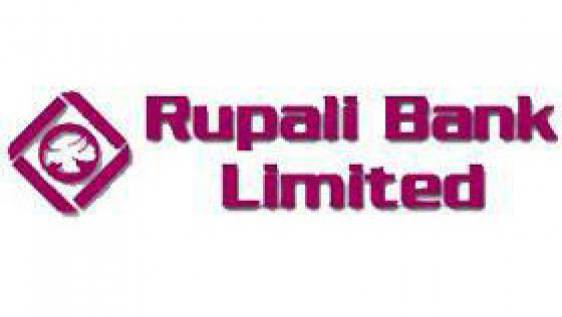The central bank has reportedly flouted rules to allow state-owned Rupali Bank to declare a dividend although the company has not made any eligible profit last year.
When other state-owned banks such as the Sonali, Janata and BASIC banks are struggling with loan scams, frauds and capital shortfalls, the Bangladesh Bank had done so only to save Rupali Bank’s face in the share market, said a highly placed source.
Documents show that the 15% dividend that Rupali announced during its last month’s annual general meeting (AGM), comprised of full bonus shares and not a penny of cash incentive.
The source, who is a senior executive at the central bank, said the fact that the bank had been allowed to share profit without actually making any, would only misguide shareholders, who would lose out if they made more investments in Rupali shares.
Existing rules suggest that banks require to compare their actual provisions with expected losses such as bad debts and asset depreciations. Any provisional shortfall would have to deducted from the capital base.
Despite suffering a massive provision shortfall of Tk552 crore, Rupali Bank showed a Tk40 crore profit for the year ended December 2013.
As of the same date, Rupali had a capital surplus of about Tk20 crore, which again is clearly not enough to cover for the huge provision shortfall, giving rise to a capital shortfall.
A bank cannot disburse dividends if it runs with capital shortfall, says the Bank Company Act.
Considering that Rupali is a listed company, Bangladesh Bank allowed it to show the paper profit without maintaining the shortfall amount, said the central bank senior executive.
As of Thursday June 26, 2014, the bank’s shares were traded for Tk61.8.
The BB senior executive said this price was absolutely overvalued considering the financial condition of the bank.
Of the state-owned banks, only Rupali Bank is listed with the share market. Although the government has always wanted to bring the other banks into the market, it could not
because of the huge losses they had been making.
Against this backdrop, the government did not want to give out a negative message to the general investors about Rupali Bank shares, the central banker said.
He alleged that the central bank was pressured by the Finance Ministry to violate its own rules despite the governor’s reluctance.
“Allowing Rupali Bank to show profit without maintaining the provision shortfall is not a logical decision because the bank will never be able to meet the shortfall,” said Dr Salehuddin Ahmed, former governor of Bangladesh Bank.
“Shareholders are being cheated in many ways. It will be unfortunate if they are cheated by the bank too,” he said.
Rupali Bank fell into crisis after signing a memorandum of understanding with the central bank as it could not disburse loan beyond a certain limit. As a result, the bank’s income suffered.
Moreover, the bank has been recently punished for exceeding the loan growth ceiling in December 2013.
The central bank instructed Rupali Bank to deposit Tk284 crore in a blocked account as penalty for failure to retain its high loan growth at 10%.
The amount of classified loan of Rupali Bank increased rapidly last year because of a sluggish business environment. As a result, the provision shortfall rose, said Rupali Bank Managing Director Farid Uddin.
“Profit will be negative if the provision shortfall amount is maintained. We have already got time from Bangladesh Bank to maintain it by September [2014],” he said.
“But we hope that we will be able to cover the shortfall amount within the stipulated time as our parties are good,” he said.
News:Dhaka Tribune/5-July-2014




Comments